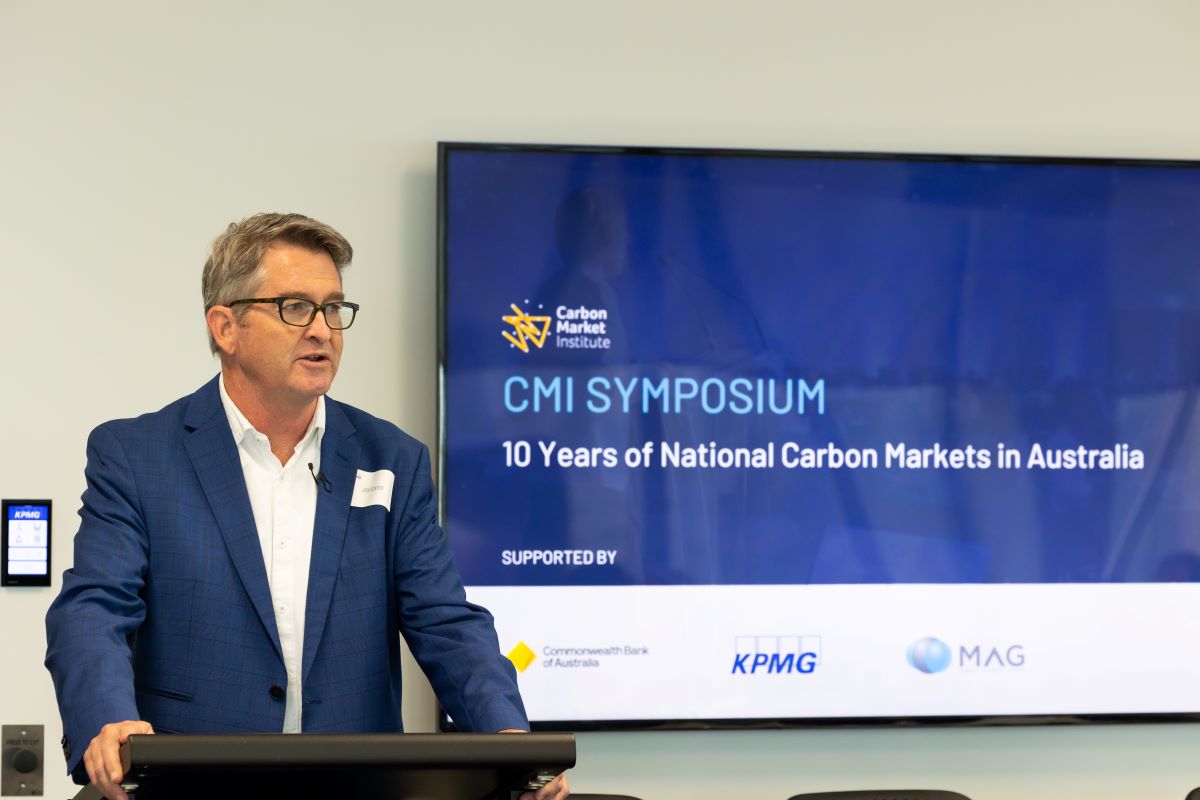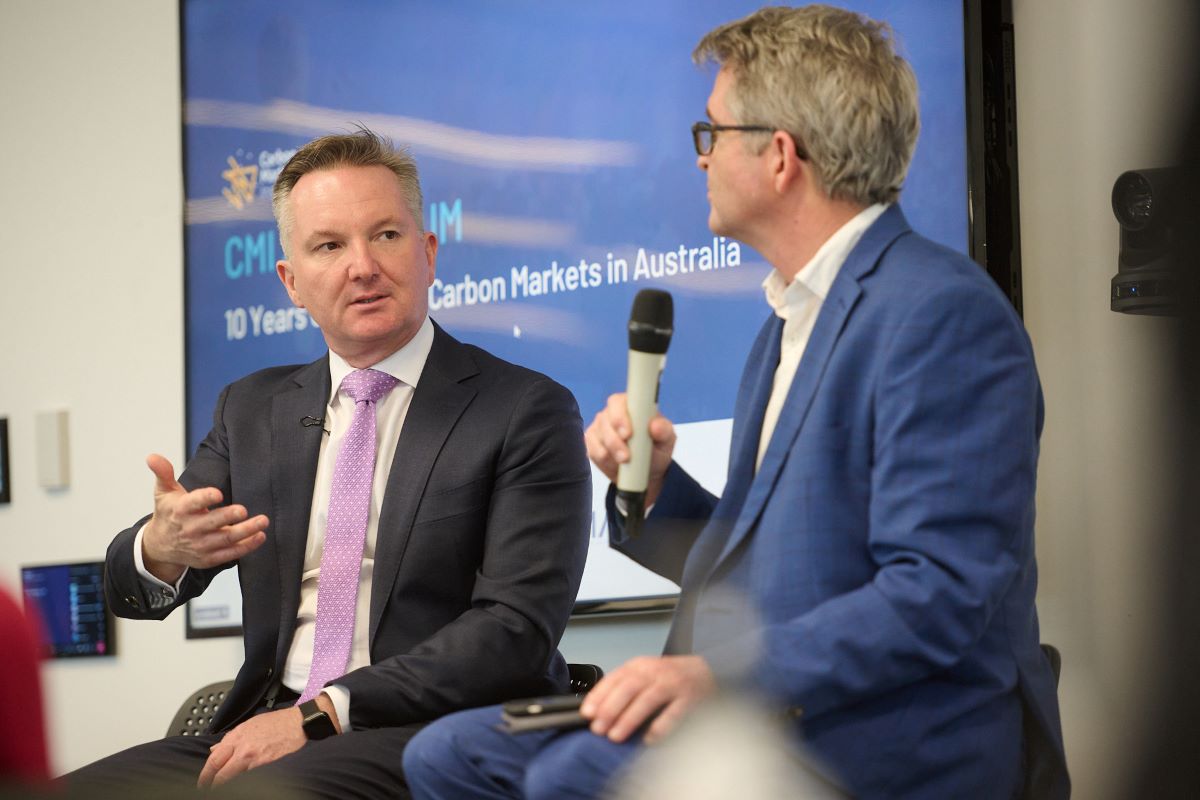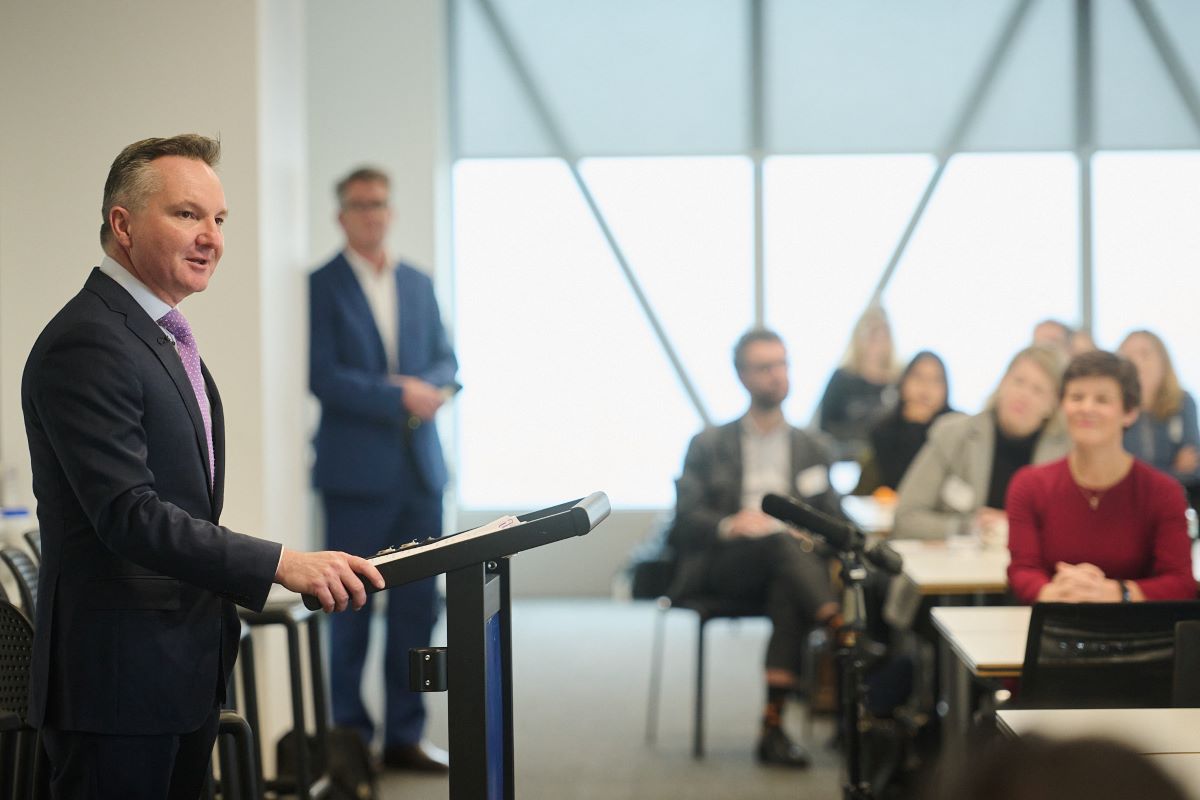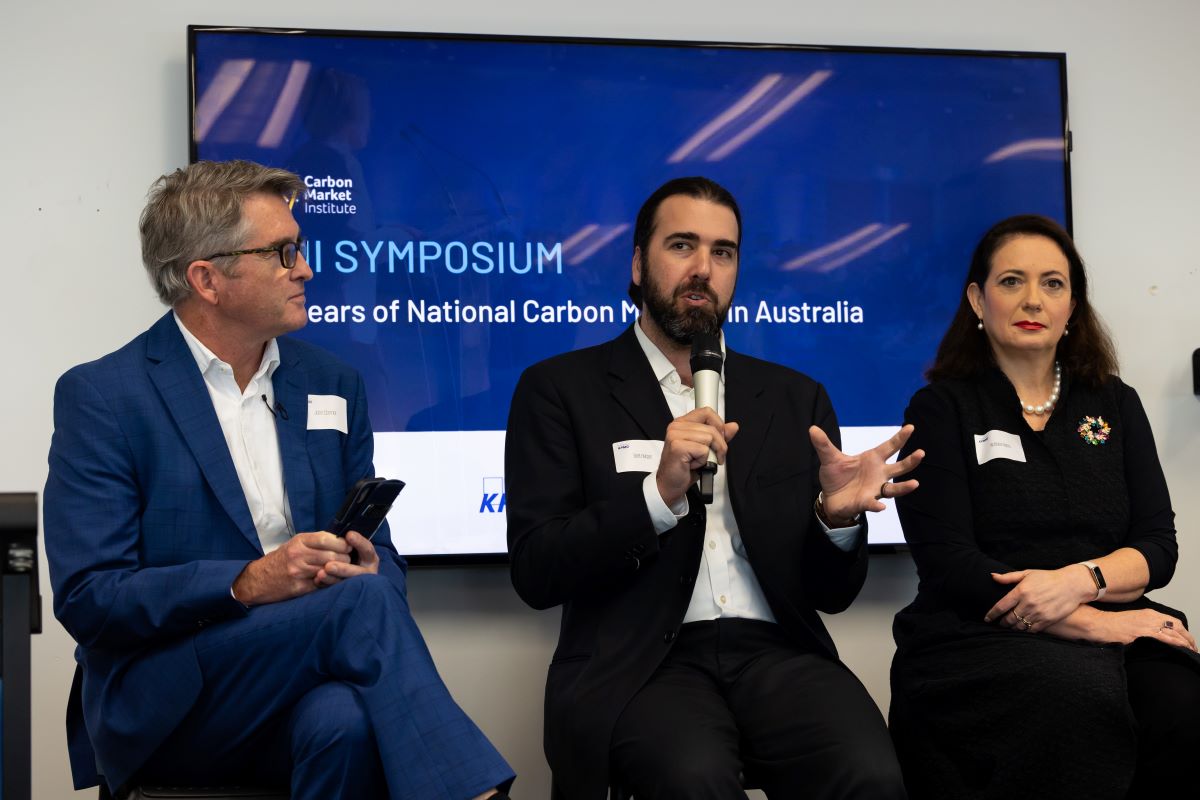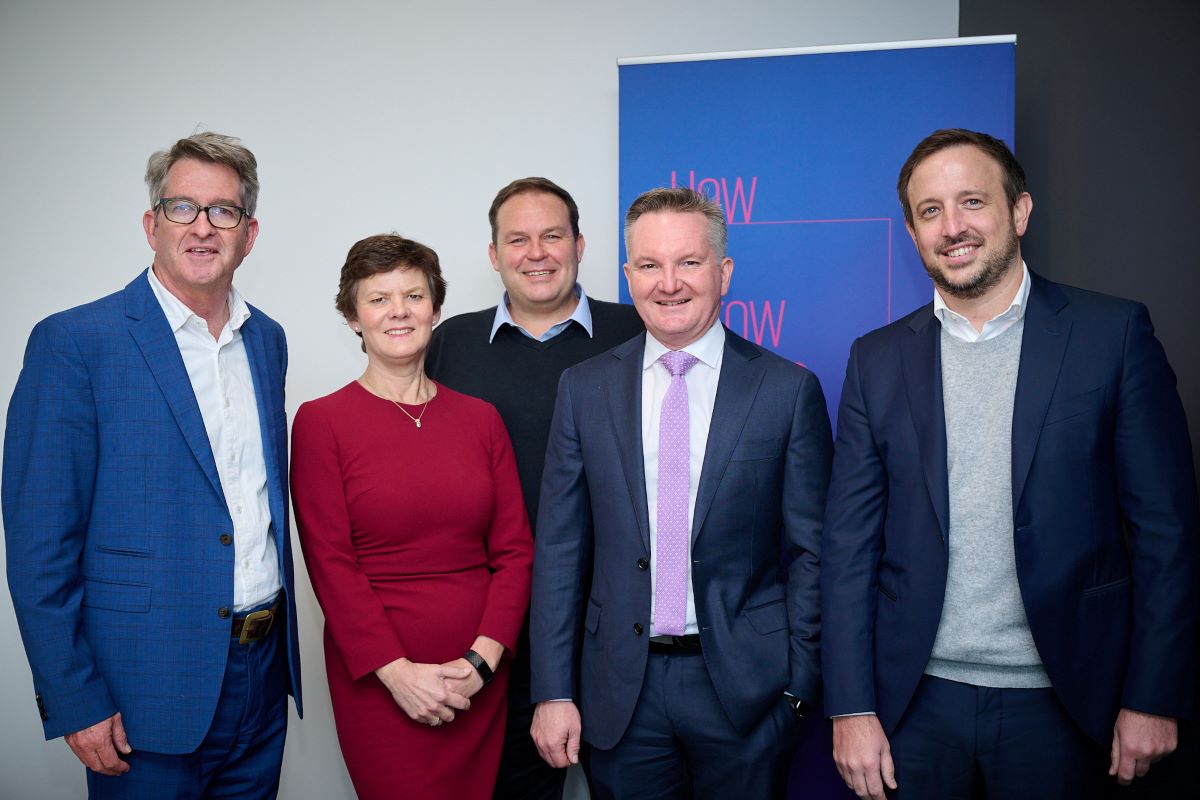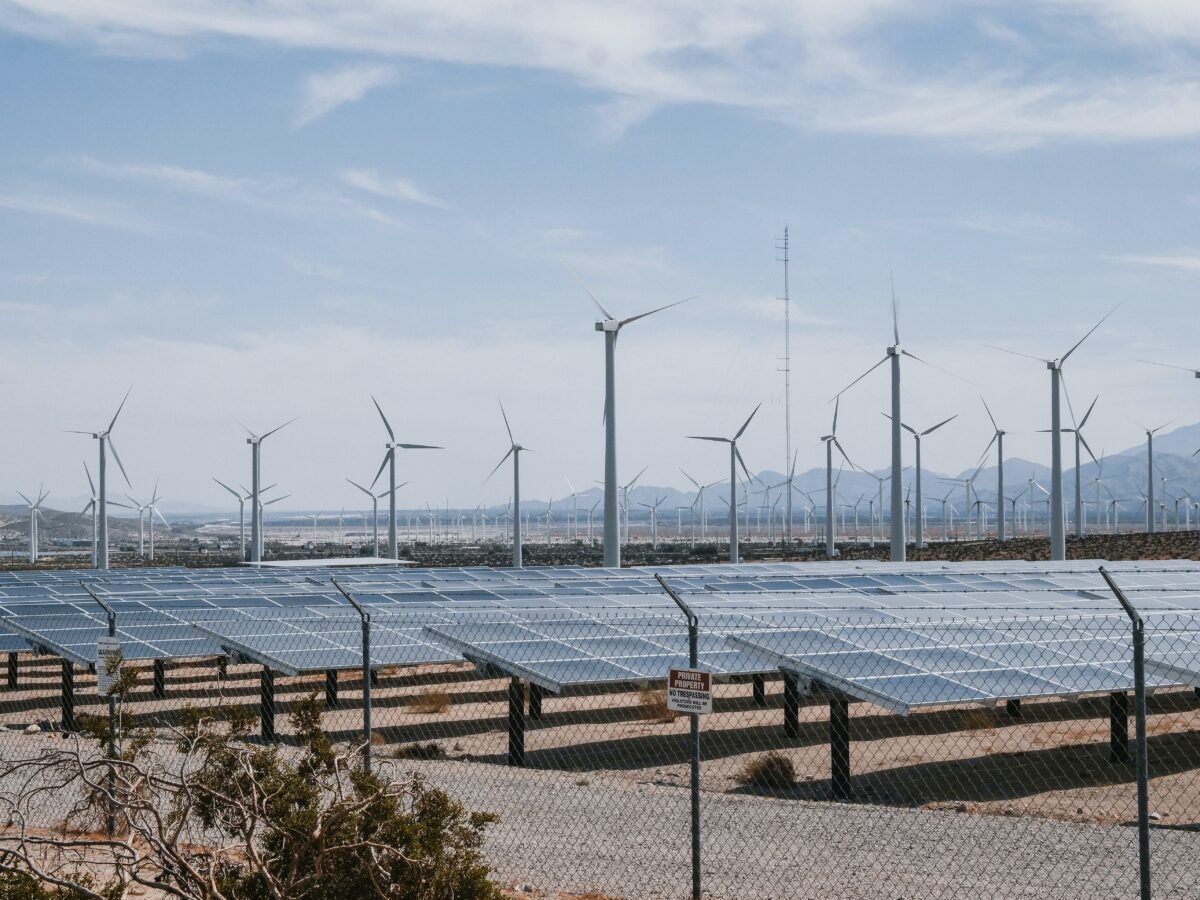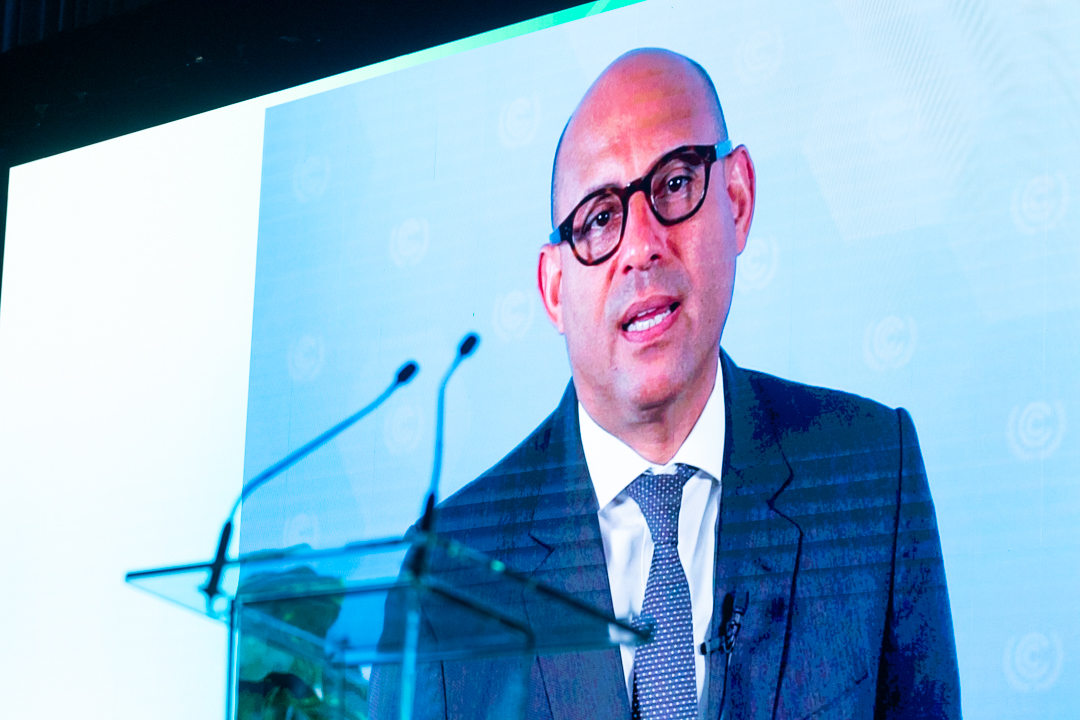On the 10-year anniversary of the start of Australia’s carbon pricing mechanism, Minister for Climate Change and Energy, Chris Bowen headlined the Carbon Market Institute’s (CMI) inaugural Symposium event last Friday, signalling the start of an important new chapter as Australia elevates its ambition in driving an economy and society of net-zero emissions.
“The event was an important moment to reflect on the history of Australian Climate Policy, shrug off its sourness and embrace the opportunity before us. It was also a day to celebrate the survival and resilience over the decade of many fine public servants, community activists, unionists, investors and entrepreneurs,” said John Connor, CMI CEO.
“But now the real work begins, and Friday’s discussions brought to light a number of important priorities that will need to be addressed, while providing a timely reminder of the tools and expertise we already have at our disposal.”
“Along with our members, including primary producers, service providers, banks and emission intensive industries, we also know that integral to this will be a carbon crediting framework that is credible, durable and investable. As such, we welcome and look forward to participating in the Ian-Chubb led ACCU Review announced on Friday.” he said.
Speaker highlights:
The Hon. Chris Bowen, Minister for Climate Change and Energy
“A policy reset on climate action and energy is underway. A policy reset that is sensible and makes net zero achievable by 2050. One in which your sector will be very important players. One that will enable business and industry to make the most of the opportunities that climate action will bring. And we will achieve this together – government, CMI and all Australians.”
Adrian King, Partner, Climate Change & Sustainability, KPMG
“We’ve made a good start. The key will be to stick with what is working and do away with what isn’t, or we could be here in 10 years talking about the same thing.”
Anthea Harris, CEO, Energy Security Board
“Including an emissions objective in national electricity law would be a useful thing in terms of guiding a range of decision-making processes across the three market bodies [the Australian Energy Market Operator, the Australian Energy Market Commission, and the Australian Energy Regulator].”
Tennant Reed, Head of Climate, Energy & Environment Policy, Australian Industry Group
“We should be watching the carbon border adjustment mechanism in Europe, as a useful tool for Australia to consider.”
Raphael Wood, Managing Director, Market Advisory Group
“Given the potential demand source from Safeguard entities, and the interaction between ACCUs and Safeguard Mechanism Credits, the focus is on the design principles of the new safeguard policy. To respect and preserve Australia’s high integrity carbon market, the policy parameters around the Safeguard Mechanism and the resulting ‘new’ credits need to be robust. It is vital that the SMC’s incentivise the most efficient achievement of emission reductions to meet the 2030 international target.”
Luke Donovan, Executive Director, Environmental Markets, Commonwealth Bank of Australia
“Carbon is a massive economic opportunity for Australia, but to realise the benefits we need to bring together demand and supply in a centralised, efficient marketplace. We also need to really scale private finance for carbon farming projects to supercharge supply of high-integrity ACCUs and help Australia’s carbon market deliver on its promise.”
Alison Reeve, Climate Change & Energy Deputy Program Director, Grattan Institute
“We are still stuck in the climate war paradigm. You need to bring the population with you. You need to talk about the relative role of regulation vs incentives vs markets. If you don’t have that, I don’t think we’re going to get there.”
Andrew Grant, Chair, Tasman Environmental Markets
“We’re still in a ‘capital light’ phase of the carbon market. Incentivising capital remains the primary challenge today.”
Amanda Cahill, CEO, The Next Economy
“The market is clearly at a stage where it can scale, but there’s a lot of work to be done to engage with the community to help them understand it.”
Rowan Foley, CEO, Aboriginal Carbon Foundation
“The reason why we do farming is for environmental, social and economic core benefits. If we get that right, we will have quality credits.”
About the Symposium
The Carbon Pricing Mechanism was one of the world’s first national emissions trading schemes with broad economic coverage, requiring liable entities to pay a price for their emissions under independently reviewed declining caps. Although repealed in July 2014, the scheme’s implementation and two-year operation was significant. It signalled the birth of Australian carbon markets which continued under the Emissions Reduction Fund and its Safeguard Mechanism. Key supporting institutions and policies like the Renewable Energy Target, the Clean Energy Finance Corporation, ARENA and the Climate Change Authority have since endured to a large extent.
This Symposium will bring together industry stakeholders, academics, government officials and policy experts from across the political spectrum. The goal is to reflect on the lessons of the last decade for our challenge in this critical decade in the transition to net-zero emissions before 2050.
About the Carbon Market Institute
The Carbon Market Institute (CMI) is a unique independent member-based organisation that is an industry association that also promotes best practice for business leading the transition to net zero emissions. Its over 140 members include primary producers, carbon project developers, Indigenous corporations, legal, technology and advisory services, insurers, banks, investors, corporate entities and emission intensive industries developing decarbonisation and offset strategies. CMI Research includes its Post-election Briefing: 5 Priorities For Climate Action and Carbon Markets.
For further information, contact Thomas Hann on 0408 880 536 or thomas.hann@carbonmarketinstitute.org

